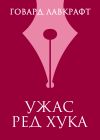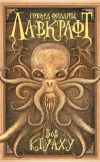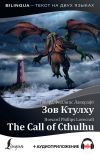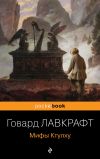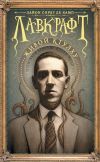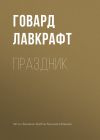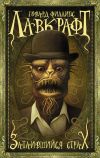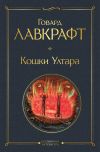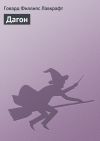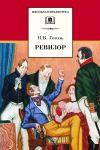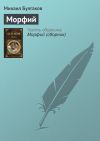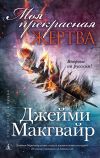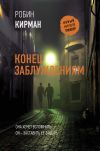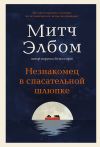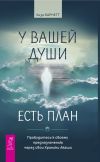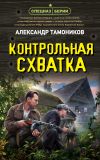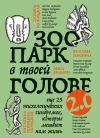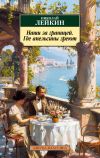Текст книги "Кошмар По-эта"

Автор книги: Говард Лавкрафт
Жанр: Зарубежные стихи, Зарубежная литература
Возрастные ограничения: +16
сообщить о неприемлемом содержимом
Текущая страница: 3 (всего у книги 11 страниц) [доступный отрывок для чтения: 3 страниц]
Ода Селене, или Диане
Луна, сияй же в девственном величье.
Лучись, дитя Латоны неземной.
В свету твоем вещей крупней обличье,
Суровость правды скрыта мягкой мгой.
Когда сверкаешь, город суетливый,
Что в блеске брата твоего убог,
Свой нрав меняет, и в тиши счастливой
Блистает как виденье, чист и строг.
Мир новый, боль где скрыла благодать,
Где шум заводов, да в дыму аллеи,
Глядит в тебя, Селена, и опять
Мечтаем мы, как пастухи в Халдее.
Диана, внемли моему прошенью.
Туда неси, мое где счастье есть —
Наперекор волн времени теченью,
Покой души в былом дай мне обресть.
To the Old Pagan Religion
Olympian Gods! How can I let ye go
And pin my faith to this new Christian creed?
Can I resign the deities I know
For him who on a cross for man did bleed?
How in my weakness can my hopes depend
On one lone God, though mighty be his pow’r?
Why can Jove’s host no more assistance lend,
To soothe my pains, and cheer my troubled hour?
Are there no Dryads on these wooded mounts
O’er which I oft in desolation roam?
Are there no Naiads in these crystal founts?
Nor Nereids upon the ocean foam?
Fast spreads the new; the older faith declines.
The name of Christ resounds upon the air.
But my wrack’d soul in solitude repines
And gives the Gods their last-receivèd pray’r.
Древней языческой религии
Олимпа Боги! Вас могу ль утратить
И пригвоздиться к вере во Христа?
Могу ль предать своих богов я ради
Терпевшего мучения креста?
И как же в слабости мне уповать
На Бога одного, пусть он велик?
Ужель мне не поможет Зевса рать
В страданиях моих и в грусти миг?
Неужто нет дриад в холмах лесистых,
Где часто я брожу совсем один?
И нет наяд в источниках сих чистых?
И нереид среди морских глубин?
Но никнет вера древности пред новой.
Христово имя воздух сотрясает.
Моя ж душа с расшатанной основой,
Богов в мольбе последней призывает.
On the Ruin of Rome
Low dost thou lie, O Rome, neath the foot of the Teuton
Slaves are thy men, and bent to the will of thy conqueror:
Whither hath gone, great city, the race
that gave law to all nations,
Subdu’d the east and the west,
and made them bow down to thy consuls.
Knew not defeat, but gave it to all who attack’d thee?
Dead! and replac’d by these wretches
who cower in confusion
Dead! They who gave us this empire to guard and to live in
Rome, thou didst fall from thy pow’r
with the proud race that made thee,
And we, base Italians, enjoy’d
what we could not have builded.
На развалинах Рима
Низко лежишь, о Рим, под пятою тевтона
В рабстве мужи твои, чтут захватчика волю:
Город великий, племя где то,
что народы повергло,
Запад с востоком
пред консулами твоими склонив?
Непобедимый, сдался ты всем нападавшим?
Мертв! лишь отбросы жалкие
вместо тебя
Мертв! тот народ, что империю дал нам
Рим, ты все ж пал,
с гордым племенем, тебя сотворившим,
А мы, итальяшки, владеем тем,
чего недостойны.
To Pan
Seated in a woodland glen
By a shallow stream
Once I fell a-musing, when
I was lull’d into a dream.
From the brook a shape arose
Half a man and half a goat.
Hoofs it had instead of toes
And a beard adorn’d its throat.
On a set of rustic reeds
Sweetly play’d this hybrid man
Naught car’d I for earthly needs,
For I knew that this was Pan.
Nymphs and Satyrs gather’d round
To enjoy the lively sound.
All too soon I woke in pain
And return’d to haunts of men.
But in rural vales I’d fain
Live and hear Pan’s pipes again.
К Пану
Раз в долине я лесной,
Ручеек где пробегал,
Наслаждался грез игрой
И тихонько задремал.
Воды разом отступили,
Человек-козел возник.
Вместо ног копыта были,
Бородой украшен лик.
На сиденье он простом
Сладко трели выводил,
Я забыл о всем земном —
Ибо знал, что Пан то был.
Вкруг сатиры, нимфы встали,
Песням радостно внимали.
Пробудясь от сказки сей,
Я вернулся в быт людей.
Лучше б жил я средь полей,
Внемля звукам Пана флейт.
On the Vanity of Human Ambition
Apollo, chasing Daphne, gain’d his prize
But lo! she turn’d to wood before his eyes.
More modern swains at golden prizes aim,
And ever strive some worldly thing to claim.
Yet ‘tis the same as in Apollo’s case,
For, once attain’d, the purest gold seems base.
All that men seek ‘s unworthy of the quest,
Yet seek they will, and never pause for rest.
True bliss, methinks, a man can only find
In virtuous life, & cultivated mind.
На тщетность человеческих стремлений
Гонялся Аполлон за Дафной зря:
Схватил – в руках лишь дерева кора.
И нынче метят пастушки на злато,
Им вещи суетной добиться надо.
Но Аполлона случай то как раз:
Сокровище добыв, в нем видят грязь.
Что люди ищут, поисков не стоит —
Однако их ничто не успокоит.
А истинное счастье, мнится мне,
В безгрешности и развитом уме.
[To His Mother on Thanksgiving]
Dear Mother: —
If, as you start toward Lillie’s festive spread,
You find me snoring loudly in my bed,
Awake me not, for I would fain repose,
And thro’ the day in quiet slumbers doze.
But lest I starve, for lack of food to eat,
Leave here a dish of Quaker Puffèd Wheat,
Or breakfast biscuit, which, it matters not,
To break my fast when out of bed I’ve got.
And if to supper you perchance should stay,
Thus to complete a glorious festive day,
Announce the fact to me by Telephone,
That whilst you eat, I may prepare my own.
[Матери на День благодарения]
Дорогая мама —
Когда на праздник к Лилли ты пойдешь,
Храпящим громко коль меня найдешь,
То не буди, покой так нужен мне,
Хочу проспать весь день во сладком сне.
Чтоб с голоду не умер я покуда,
Поставь мне здесь пшеничных хлопьев блюдо
Иль с завтрака осталось что печенье —
Чем пост прервать вслед сна, мне нет значенья.
А если ужинать там будешь вдруг,
Веселый так чтоб завершить досуг,
О сем по телефону извести —
Я приготовлю сам, пока ешь ты.
The End of the Jackson War
Indulgent sir, pray spare an inch or two,
And print the carping critics’ joint adieu.
So long it is since we began the fray
That readers swear we’ve filched your Log away!
Forgive, we beg, the sinners that presume
To fill with venomed verse such precious room.
Inflamed by war, and in a martial rage,
We held a while the centre of the stage
Till, blinded by each other’s furious fire,
We battled on, forgetting to retire.
But fiercest feuds draw sometimes to their ends,
And ancient foemen live to meet as friends:
So do we now, conjoin’d in lasting peace,
Lay down our pens, and mutual slander cease.
What sound is this? ‘Tis but a joyous yell
From thankful thousands, as we say farewell.
Конец джексоновской войны
О сэр, достанет дюйма для изданья
От критиков совместного прощанья.
Давно свою мы ссору развязали,
Клянут уж нас, что ваш «Журнал» украли!
Простите, молим, наши все грехи —
В сокровищницу с ядом слать стихи.
Неистовой захвачены борьбой,
Удерживали сцену за собой,
И яростным огнем ослеплены,
Забыв об отдыхе, сражались мы.
Стихает ярость распрей иногда,
Друзьями сходятся враги тогда:
Вот так и мы, мир прочный заключим,
Отложим перья, ругань прекратим.
Но что за шум? Звучит то ликованье
От тысяч благодарных за прощанье.
The Teuton’s Battle-Song
Omnis erat vulnus unda
Terra rubefacta calido
Frendebat gladius in loricas
Gladius fludebat clypeus…
Non retrocedat vir a viro
Hoc fuit viri fortis nobilitas diu…
Laetus cerevisiam cum Asis
In summa sede bibam
Vitae clapsae sunt horae
Ridens moriar.
Regner Lodbrog
The mighty Woden laughs upon his throne,
And once more claims his children for his own.
The voice of Thor resounds again on high,
While arm’d Valkyries ride from out the sky:
The Gods of Asgard all their pow’rs release
To rouse the dullard from his dream of peace.
Awake! ye hypocrites, and deign to scan
The actions of your “brotherhood of Man”.
Could your shrill pipings in the race impair
The warlike impulse put by Nature there?
Where now the gentle maxims of the school,
The cant of preachers, and the Golden Rule?
What feeble word or doctrine now can stay
The tribe whose fathers own’d Valhalla’s sway?
Too long restrain’d, the bloody tempest breaks,
And Midgard ‘neath the tread of warriors shakes.
On to thy death, Berserker bold! and try
In acts of Godlike bravery to die!
Who cares to find the heaven of the priest,
When only warriors can with Woden feast?
The flesh of Schrimnir, and the cup of mead,
Are but for him who falls in martial deed:
Yon luckless boor, that passive meets his end,
May never in Valhalla’s court contend.
Slay, brothers, slay! and bathe in crimson gore;
Let Thor, triumphant, view the sport once more!
All other thoughts are fading in the mist,
But to attack, or if attack’d, resist.
List, great Alfadur, to the clash of steel;
How like a man does each brave swordsman feel!
The cries of pain, the roars of rampant rage,
In one vast symphony our ears engage.
Strike! Strike him down! whoever bars the way;
Let each kill many ere he die today!
Ride o’er the weak; accomplish what ye can;
The Gods are kindest to the strongest man!
Why should we fear? What greater joy than this?
Asgard alone could give us sweeter bliss!
My strength is waning; dimly can I see
The helmeted Valkyries close to me.
Ten more I slay! How strange the thought of fear,
With Woden’s mounted messengers so near!
The darkness comes; I feel my spirit rise;
A kind Valkyrie bears me to the skies.
With conscience clear, I quit the earth below,
The boundless joys of Woden’s halls to know.
The grove of Glasir soon shall I behold,
And on Valhalla’s tablets be enroll’d:
There to remain, till Heindall’s horn shall sound,
And Ragnarok enclose creation round;
And Bifrost break beneath bold Surtur’s horde,
And Gods and men fall dead beneath the sword;
When sun shall die, and sea devour the land,
And stars descend, and naught but Chaos stand.
Then shall Alfadur make his realm anew,
And Gods and men with purer life indue.
In that blest country shall Abundance reign,
Nor shall one vice or woe of earth remain.
Then, not before, shall men their battles cease,
And live at last in universal peace.
Thro’ cloudless heavens shall the eagle soar,
And happiness prevail for evermore.
Тевтонская боевая песнь
Каждая рана потоком
Землю багрила теплым вином
Меч звенел о латы
Меч крошил щиты…
Воин с воином сошлись
Сей воин храбрый славен давно…
Радостный, брагу из земли Азийской,
Воссев на вершине, я выпью.
Жизни ускользают часы.
Смеющийся, умру.
Регнер Лодброг
На троне в смехе Вотан-вседержитель
Сзывает отпрысков к себе в обитель.
Раскаты Тора вновь в выси гремят,
Валькирии с оружием летят:
Все силы грозных Асгарда богов
Тупиц пробудят от их мирных снов.
Проснитесь и извольте же, ханжи,
Узреть дела об «общем братстве» лжи.
Мог заглушить ли в расе визг ваш чванный
Воинственный порыв, Природой данный?
Где ж добренькие максимы для школ
И Золотое Правило от зол?
Каким призывом жалким вы б сдержали
То племя, чьих отцов в Вальхаллу брали?
Сгущается кровавой бури мрак,
И Мидгард сотрясает марша шаг.
Себя ты смертью, берсерк, обагри!
В божественном бесстрашии умри!
Кого заботят небеса святош,
Коль воин лишь на Вотана пир вхож?
И плоть Сэхримнира, и чаша меда
Для бьющихся до смертного исхода:
Трусливой смерти снесшему позор
Вовеки не вступить в Вальхаллы двор.
Несите ж смерть! Омоет пусть вас кровь,
Ликуя, Тор узрит охоту вновь!
Одна лишь мысль ясна – атаковать,
Коль атакован – так не отступать.
Услышь, Альфедр, удары с бойни,
Как чувствует себя мужчиной воин!
Рев ярости свирепой, боли глас
Сливаются в симфонию для нас.
Рази! – кто не вставал бы на дороге;
Пред смертью пусть зарежет каждый многих!
Над слабым будь; что можешь, то исполни —
К сильнейшим Боги только благосклонны!
Бояться? С чем такой восторг сравним?
Нас осчастливить Асгард мог один!
Но тают силы, смутно вижу я,
Валькирии уж около меня.
Убил еще десяток! Чужд мне страх —
Совсем ведь рядом девы на конях!
Вот пала тьма, и дух оставил тело,
Валькирия со мною ввысь взлетела.
Чист совестью, я покидаю мир,
Узнать чтоб Вотана веселый пир.
Увижу вскоре рощи Гласир чудо
И занесен в Вальхаллы списки буду:
Там ждать, когда задует Хеймдалль в рог,
Замкнет кольцо творенья Рагнарёк,
Биврест разрушит Суртура орда,
Богов, людей пожнет меча страда,
Исчезнет солнце, море сушь сожрет,
Погаснут звезды, Хаос снизойдет.
Затем Альфедр создаст свой мир по новой,
Богов, людей с чистейшею основой.
Придет страна блаженная Обилья,
Не будет в ней пороков и насилья.
Оставят люди лишь тогда сраженья,
Покой охватит грани все творенья.
А в ясном небе воспарит орел,
И счастье навсегда займет престол.
On Receiving a Picture of Swans
With pensive grace the melancholy Swan
Mourns o’er the tomb of luckless Phaëton;
On grassy banks the weeping poplars wave,
And guard with tender care the wat’ry grave.
Would that I might, should I too proudly claim
An Heav’nly parent, or a Godlike fame,
When flown too high, and dash’d to depths below,
Receive such tribute as a Cygnus’ woe!
The faithful bird, that dumbly floats along,
Sighs all the deeper for his want of song.
На получение открытки с лебедями
Печальный Лебедь с грацией унылой
Скорбит над фаэтоновой могилой;
В слезах качают тополя листвой,
Могилы водной берегут покой.
Я б мог, воздать просил бы величаво
Небесным родом или божьей славой,
Когда, поднявшись ввысь и пав в глубины,
Обрел в награду б плач лишь лебединый!
А верный лебедь молча проплывает,
В тоске по песне глубже все вздыхает.
Temperance Song
[Tune: “The Bonnie Blue Flag”]
1. We are a band of brothers
Who fight the demon Rum,
With all our strength until at length
A better time shall come.
(Chorus)
Hurrah! Hurrah! for Temperance, Hurrah!
‘Tis sweet to think that deadly drink
Some day no more shall mar!
2. We’ll drive from off our table,
We’ll drive from out our gate
The gross offence that clouds our sense,
And leads to dismal Fate.
3. We’ll stop the bloated brewer,
We’ll close the foul saloon,
We’ll teach the land to understand
How mighty is our boon.
4. If aught our progress hinder,
Or check our upward course,
We’ll scorn the hand that threats our stand
And strive with double force.
5. And when at last we triumph;
When whiskey fades from view;
The drunkard slave no more shall crave,
But join our legions, too!
Песнь трезвости
На мелодию «Прекрасного Синего Флага»
1. Отряд мы братьев стойкий,
1. Мы бьемся с Ромом злым
1. И в силу всю идем ко дню,
1. Настанет что благим.
Припев:
Ура! Ура! И Трезвости ура!
Я верить рад, что спирта яд
Уйдет с пути добра!
2. Мы скинем со стола,
1. Изгоним за порог
1. Греха тот вид, что ум мутит
1. И жизни косит срок.
3. Закроем пивоварни
1. И каждый мерзкий бар,
1. Поймут тогда, и навсегда,
1. Огромен как наш дар.
4. Мешать нам вдруг что будет,
1. Иль сдержит наш подъем,
1. Презрим мы то, грозит нам что,
1. И снова в бой пойдем.
5. Когда ж придет победа,
1. И сгинет виски вон,
1. Пропойца-раб не будет слаб,
1. В наш вступит легион!
The Poe-et’s Nightmare
A FableLuxus tumultus semper causa est.
Небылица
Lucullus Languish, student of the skies,
And connoisseur of rarebits and mince pies,
A bard by choice, a grocer’s clerk by trade,
(Grown pessimist through honours long delay’d)
A secret yearning bore, that he might shine
In breathing numbers, and in song divine.
Each day his fountain pen was wont to drop
An ode or dirge or two about the shop,
Yet naught could strike the chord within his heart
That throbb’d for poesy, and cry’d for art.
Each eve he sought his bashful Muse to wake
With overdoses of ice cream and cake,
But though th’ ambitious youth a dreamer grew,
Th’ Aonian Nymph delcin’d to come to view.
Sometimes at dusk he scour’d the heav’ns afar
Searching for raptures in the evening star;
One night he strove to catch a tale untold
In crystal deeps – but only caught a cold.
So pin’d Lucullus with his lofty woe,
Till one drear day he bought a set of Poe:
Charm’d with the cheerful horrors there display’d,
He vow’d with gloom to woo the Heav’nly Maid.
Of Auber’s Tarn and Yaanek’s slope he dreams,
And weaves an hundred Ravens in his schemes.
Not far from our young hero’s peaceful home,
Lies the fair grove wherein he loves to roam.
Tho’ but a stunted copse in vacant lot,
He dubs it Tempe, and adores the spot;
When shallow puddles dot the wooded plain,
And brim o’er muddy banks with muddy rain,
He calls them limpid lakes or poison pools,
(Depending on which bard his fancy rules).
‘Tis here he comes with Heliconian fire
On Sundays when he smites the Attic lyre;
And here one afternoon he brought his gloom,
Resolv’d to chant a poet’s lay of doom.
Roget’s Thesaurus, and a book of rhymes,
Provide the rungs whereon his spirit climbs:
With this grave retinue he trod the grove
And pray’d the Fauns he might a Poe-et prove.
But sad to tell, ere Pegasus flew high,
The not unrelish’d supper hour drew nigh;
Our tuneful swain th’ imperious call attends,
And soon above the groaning table bends.
Though it were too prosaic to relate
Th’ exact particulars of what he ate,
(Such long-drawn lists the hasty reader skips,
Like Homer’s well-known catalogue of ships)
This much we swear: that as adjournment near’d,
A monstrous lot of cake had disappear’d!
Soon to his chamber the young bard repairs,
And courts soft Somnus with sweet Lydian airs;
Thro’ open casement scans the star-strown deep,
And ‘neath Orion’s beams sinks off to sleep.
Now start from airy dell the elfin train
That dance each midnight o’er the sleeping plain,
To bless the just, or cast a warning spell
On those who dine not wisely, but too well.
First Deacon Smith they plague, whose nasal glow
Comes from what Holmes hath call’d “Elixir Pro”;
Group’d round the couch his visage they deride,
Whilst through his dreams unnumber’d serpents glide.
Next troop the little folk into the room
Where snore our young Endymion, swath’d in gloom:
A smile lights up his boyish face, whilst he
Dreams of the moon – or what he ate at tea.
The chieftain elf th’ unconscious youth surveys,
And on his form a strange enchantment lays:
Those lips, that lately trill’d with frosted cake,
Uneasy sounds in slumbrous fashion make;
At length their owner’s fancies they rehearse,
And lisp this awesome Poe-em in blank verse:
Чрезмерность враг покоя неизменно.
Aletheia Phrikodes
Лукулл, что Лэнгвиш, астроном-любитель
Гренков и сладких пирожков ценитель,
Душою бард, занятьем – продавец,
(Унынья полон: славы где ж венец?)
Желанье тайное имел: блистать
Живым стихом и песнею вещать.
Перо ж строчило ежедневно с ходу
О лавке панихиду или оду:
Увы, не полнилось высоким чувством
Поэта сердце, билось что искусством.
Взывал он к музе робкой вечерами
Пирожными и прочими сластями,
Хоть из подростка вырос фантазер,
Не тешил образ аониды взор.
На небо он смотрел в закатный час,
В звезде вечерней чтоб обресть экстаз;
Раз ночью взялся ухватить гимн чуду
В глуби кристальной – подхватил простуду.
Тужил Лукулл от горя своего,
Пока однажды не купил книг По:
Пленившись ужасами на страницах,
Поклялся хмуро, что придет девица.
Зрит в грезах Йанек, озеро Обера,
Сто «Воронов» отныне планов мера.
Вблизи от дома нашего героя —
Лесок, где ищет он порой покоя.
Пускай кустов то чахлых лишь скопленье,
Нарек его он Темпе в восхищенье;
Когда равнину покрывают лужи,
Полнясь дождем среди размокшей суши —
Озера иль пруды с отравой это
(Зависит от увлекшего поэта).
Здесь Геликонский пыл его и жжет
Воскресным днем, коль лиру он берет;
Сюда Лукулл принес свою хандру
Воспеть поэта горькую судьбу.
Тезаурус Роже да рифм словарь —
Подспорье духу, что во тьме фонарь:
С сей важной свитой он вступил в лесок,
Взмолился фавнам, как По-эт чтоб рек.
К несчастью, прежде чем Пегас взлетел,
Весьма желанный ужин подоспел;
Внимает зову музыкант-пастух,
И вот уж за столом он ест за двух.
Хотя и было б слишком прозаично
Перечислять, что съедено им лично,
(Не стерпит длинный список чтец скорей,
Как каталог Гомеров кораблей)
Клянемся мы: еще до перерыва
Пирог огромный скушал он ретиво!
Бард юный в комнату свою уходит,
К Гипносу песнь лидийскую заводит;
Вздевает очи к звездам утомленно
И вязнет в сне под светом Ориона.
Но вот из леса грез мчит эльфов рой,
Над долом что танцует в час ночной,
Благословить примерных иль околдовать
Всех тех, кто в ужин любит пировать.
Пал первым дьякон Смит, багрян чей нос
От «Эликсира», в стих что Холмс занес;
Смеются эльфы, обступив постель,
И змеи в снах его кишат отсель.
Вслед спальня подвергается атаке,
Храпит где наш Эндимион во мраке
С улыбкой на мальчишеском челе,
Когда луну – иль ужин – видит в сне.
Вождь эльфов на юнца бросает взгляд,
И чары странные на нем лежат:
Уста, что наслаждались пирогом,
Теперь бормочут в забытьи с трудом;
Полнясь хозяина мечтами всеми,
Лепечут белые стихи По-эмы:
Omnia risus et omnia pulvis et omnia nihil.
Demoniac clouds, up-pil’d in chasmy reach
Of soundless heav’n, smother’d the brooding night;
Nor came the wonted whisp’rings of the swamp,
Nor voice of autumn wind along the moor,
Nor mutter’d noises of th’ insomnious grove
Whose black recesses never saw the sun.
Within that grove a hideous hollow lies,
Half bare of trees; a pool in centre lurks
That none dares sound; a tarn of murky face,
(Tho’ naught can prove its hue, since light of day,
Affrighted, shuns the forest-shadow’s banks).
Hard by, a yawning hillside grotto breathes
From deeps unvisited, a dull, dank air
That sears the leaves on certain stunted trees
Which stand about, clawing the spectral gloom
With evil boughs. To this accursed dell
Come woodland creatures, seldom to depart:
Once I behold, upon a crumbling stone
Set altar-like before the cave, a thing
I saw not clearly, yet from glimpsing fled.
In this half-dusk I meditate alone
At many a weary noontide, when without
A world forgets me in its sun-blest mirth.
Here howls by night the werewolves, and the souls
Of those that knew me well in other days.
Yet on this night the grove spake not to me;
Nor spake the swamp, nor wind along the moor
Nor moan’d the wind about the lonely eaves
Of the bleak, haunted pile wherein I lay.
I was afraid to sleep, or quench the spark
Of the low-burning taper by my couch.
I was afraid when through the vaulted space
Of the old tow’r, the clock-ticks died away
Into a silence so profound and chill
That my teeth chatter’d – giving yet no sound.
Then flicker’d low the light, and all dissolv’d
Leaving me floating in the hellish grasp
Of body’d blackness, from whose beating wings
Came ghoulish blasts of charnel-scented mist.
Things vague, unseen, unfashion’d, and unnam’d
Jostled each other in the seething void
That gap’d, chaotic, downward to a sea
Of speechless horror, foul with writhing thoughts.
All this I felt, and felt the mocking eyes
Of the curs’d universe upon my soul;
Yet naught I saw nor heard, till flash’d a beam
Of lurid lustre through the rotting heav’ns,
Playing on scenes I labour’d not to see.
Methought the nameless tarn, alight at last,
Reflected shapes, and more reveal’d within
Those shocking depths that ne’er were seen before;
Methought from out the cave a demon train,
Grinning and smirking, reel’d in fiendish rout;
Bearing within their reeking paws a load
Of carrion viands for an impious feast.
Methought the stunted trees with hungry arms
Grop’d greedily for things I dare not name;
The while a stifling, wraith-like noisomeness
Fill’d all the dale, and spoke a larger life
Of uncorporeal hideousness awake
In the half-sentient wholeness of the spot.
Now glow’d the ground, and tarn, and cave, and trees,
And moving forms, and things not spoken of,
With such a phosphorescence as men glimpse
In the putrescent thickets of the swamp
Where logs decaying lie, and rankness reigns.
Methought a fire-mist drap’d with lucent fold
The well-remember’d features of the grove,
Whilst whirling ether bore in eddying streams
The hot, unfinish’d stuff of nascent worlds
Hither and thither through infinity
Of light and darkness, strangely intermix’d;
Wherein all entity had consciousness,
Without th’ accustom’d outward shape of life.
Of these swift-circling currents was my soul,
Free from the flesh, a true constituent part;
Nor felt I less myself, for want of form.
Then clear’d the mist, and o’er a star-strown scene
Divine and measureless, I gaz’d in awe.
Alone in space, I view’d a feeble fleck
Of silvern light, marking the narrow ken
Which mortals call the boundless universe.
On ev’ry side, each as a tiny star,
Shone more creations, vaster than our own,
And teeming with unnumber’d forms of life;
Though we as life would recognize it not,
Being bound to earthy thoughts of human mould.
As on a moonless night the Milky Way
In solid sheen displays its countless orbs
To weak terrestrial eyes, each orb a sun;
So beam’d the prospect on my wond’ring soul;
A spangled curtain, rich with twinkling gems,
Yet each a mighty universe of suns.
But as I gaz’d, I sens’d a spirit voice
In speech didactic, though no voice it was,
Save as it carried thought. It bade me mark
That all the universes in my view
Form’d but an atom in infinity;
Whose reaches pass the ether-laden realms
Of heat and light, extending to far fields
Where flourish worlds invisible and vague,
Fill’d with strange wisdom and uncanny life,
And yet beyond; to myriad spheres of light,
To spheres of darkness, to abysmal voids
That know the pulses of disorder’d force.
Big with these musings, I survey’d the surge
Of boundless being, yet I us’d not eyes,
For spirit leans not on the props of sense.
The docent presence swell’d my strength of soul;
All things I knew, but knew with mind alone.
Time’s endless vista spread before my thought
With its vast pageant of unceasing change
And sempiternal strife of force and will;
I saw the ages flow in stately stream
Past rise and fall of universe and life;
I saw the birth of suns and worlds, their death,
Their transmutation into limpid flame,
Their second birth and second death, their course
Perpetual through the aeons’ termless flight,
Never the same, yet born again to serve
The varying purpose of omnipotence.
And whilst I watch’d, I knew each second’s space
Was greater than the lifetime of our world.
Then turn’d my musings to that speck of dust
Whereon my form corporeal took its rise;
That speck, born but a second, which must die
In one brief second more; that fragile earth;
That crude experiment; that cosmic sport
Which holds our proud, aspiring race of mites
And moral vermin; those presuming mites
Whom ignorance with empty pomp adorns,
And misinstructs in specious dignity;
Those mites who, reas’ning outward, vaunt themselves
As the chief work of Nature, and enjoy
In fatuous fancy the particular care
Of all her mystic, super-regnant pow’r.
And as I strove to vision the sad sphere
Which lurk’d, lost in ethereal vortices;
Methough my soul, tun’d to the infinite,
Refus’d to glimpse that poor atomic blight;
That misbegotten accident of space;
That globe of insignificance, whereon
(My guide celestial told me) dwells no part
Of empyreal virtue, but where breed
The coarse corruptions of divine disease;
The fest’ring ailments of infinity;
The morbid matter by itself call’d man:
Such matter (said my guide) as oft breaks forth
On broad Creation’s fabric, to annoy
For a brief instant, ere assuaging death
Heal up the malady its birth provok’d.
Sicken’d, I turn’d my heavy thoughts away.
Then spake th’ ethereal guide with mocking mien,
Upbraiding me for searching after Truth;
Visiting on my mind the searing scorn
Of mind superior; laughing at the woe
Which rent the vital essence of my soul.
Methought he brought remembrance of the time
When from my fellows to the grove I stray’d,
In solitude and dusk to meditate
On things forbidden, and to pierce the veil
Of seeming good and seeming beauteousness
That covers o’er the tragedy of Truth,
Helping mankind forget his sorry lot,
And raising Hope where Truth would crush it down.
He spake, and as he ceas’d, methought the flames
Of fuming Heav’n resolv’d in torments dire;
Whirling in maelstroms of rebellious might,
Yet ever bound by laws I fathom’d not.
Cycles and epicycles of such girth
That each a cosmos seem’d, dazzled my gaze
Till all a wild phantasmal flow became.
Now burst athwart the fulgent formlessness
A rift of purer sheen, a sight supernal,
Broader that all the void conceiv’d by man,
Yet narrow here. A glimpse of heav’ns beyond;
Of weird creations so remote and great
That ev’n my guide assum’d a tone of awe.
Borne on the wings of stark immensity,
A touch of rhythm celestial reach’d my soul;
Thrilling me more with horror than with joy.
Again the spirit mock’d my human pangs,
And deep revil’d me for presumptuous thoughts;
Yet changing now his mien, he bade me scan
The wid’ning rift that clave the walls of space;
He bade me search it for the ultimate;
He bade me find the truth I sought so long;
He bade me brave th’ unutterable Thing,
The final Truth of moving entity.
All this he bade and offer’d – but my soul,
Clinging to life, fled without aim or knowledge,
Shrieking in silence through the gibbering deeps.
Thus shriek’d the young Lucullus, as he fled
Through gibbering deeps – and tumbled out of bed;
Within the room the morning sunshine gleams,
Whilst the poor youth recalls his troubled dreams.
He feels his aching limbs, whose woeful pain
Informs his soul his body lives again,
And thanks his stars – or cosmoses – or such —
That he survives the noxious nightmare’s clutch.
Thrill’d with the music of th’ eternal spheres,
(Or is it the alarm-clock that he hears?)
He vows to all the Pantheon, high and low,
No more to feed on cake, or pie, or Poe.
And now his gloomy spirits seem to rise,
As he the world beholds with clearer eyes;
The cup he thought too full of dregs to quaff,
Affords him wine enough to raise a laugh.
(All this is metaphor – you must not think
Our late Endymion prone to stronger drink!)
With brighter visage and with lighter heart,
He turns his fancies to the grocer’s mart;
And strange to say, at last he seems to find
His daily duties worthy of his mind.
Since Truth prov’d such a high and dang’rous goal,
Our bard seeks one less trying to his soul;
With deep-drawn breath he flouts his dreary woes,
And a good clerk from a bad poet grows!
Now close attend my lay, ye scribbling crew
That bay the moon in numbers strange and new;
That madly for the spark celestial bawl
In metres short or long, or none at all;
Curb your rash force, in numbers or at tea,
Nor over-zealous for high fancies be;
Reflect, ere ye the draught Pierian take,
What worthy clerks or plumbers ye might make;
Wax not too frenzied in the leaping line
That neither sense nor measure can confine,
Lest ye, like young Lucullus Launguish, groan
Beneath Poe-etic nightmares of your own!
Внимание! Это не конец книги.
Если начало книги вам понравилось, то полную версию можно приобрести у нашего партнёра - распространителя легального контента. Поддержите автора!Правообладателям!
Данное произведение размещено по согласованию с ООО "ЛитРес" (20% исходного текста). Если размещение книги нарушает чьи-либо права, то сообщите об этом.Читателям!
Оплатили, но не знаете что делать дальше?
